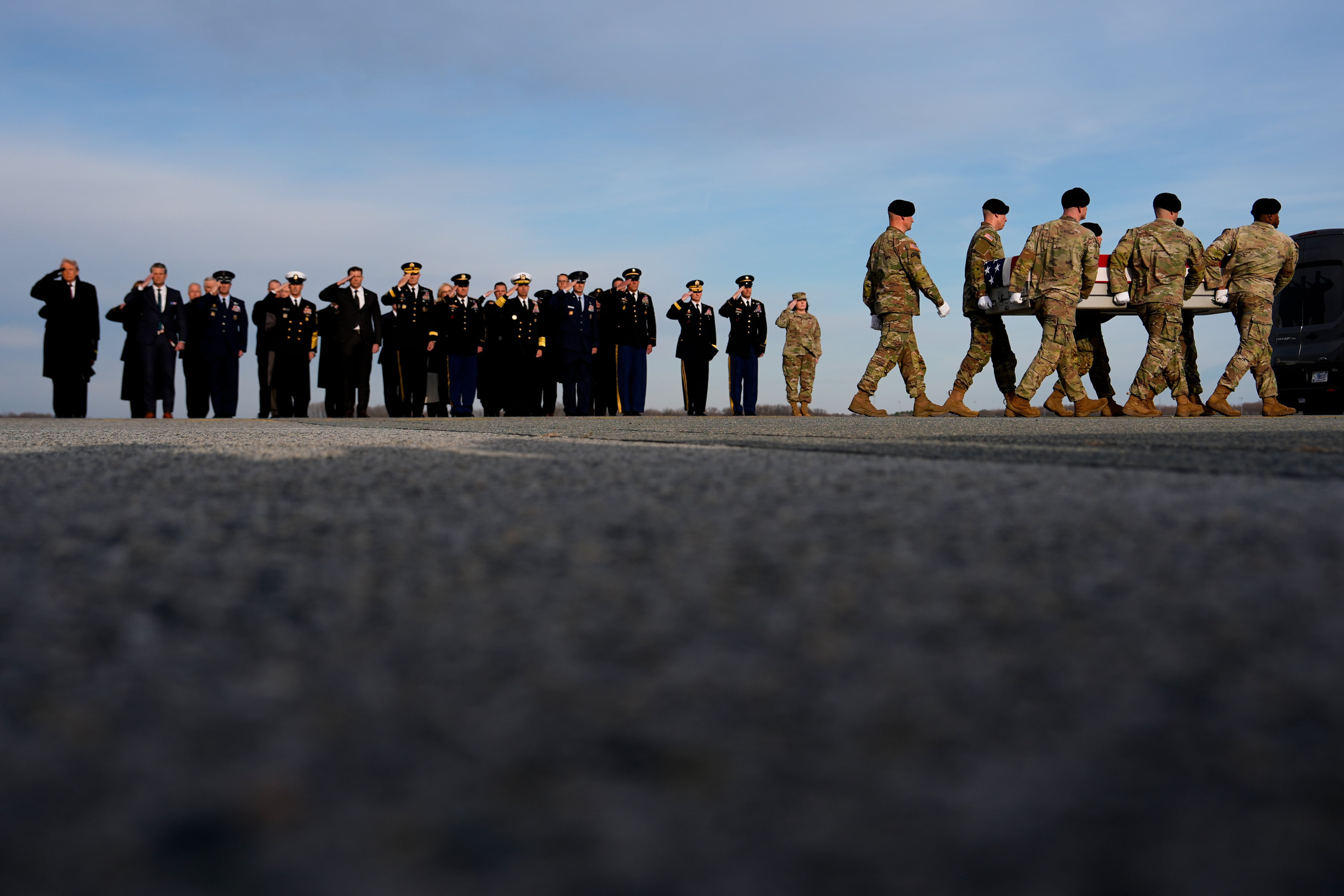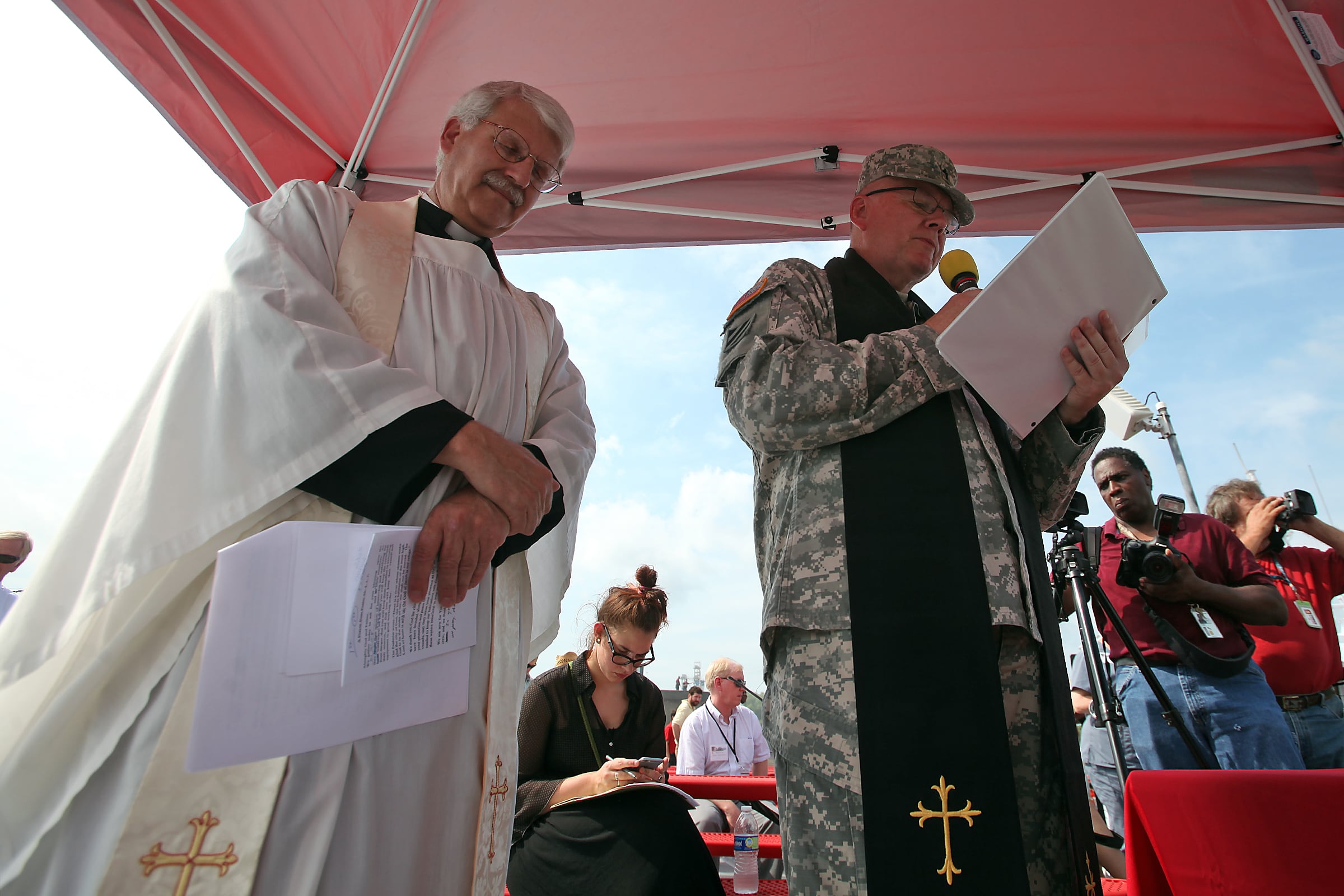FORT BELVOIR, Va. ― For the first time since the Army preferred charges on the case, the woman at the center of rape accusations against an Army special victims prosecutor appeared as a witness Monday in a pre-trial motions hearing.
Capt. Scott Hockenberry is scheduled to go to court-martial for three counts of forcible intercourse and three counts of sexual assault consummated by a battery against the woman, also an Army judge advocate, while they were both stationed at Fort Sill, Oklahoma, in 2016.
“This is a consensual relationship that goes 100 percent to the alleged victim’s credibility,” Brian Pistera, Hockenberry’s attorney, argued before judge Col. Daniel Brookhart.
Army Times does not identify alleged victims of sexual assault.
Hockenberry appeared with a new uniformed attorney, Capt. Amanda Staples, and two new civilian attorneys, Richmond, Virginia-based Brian Pristera and Daniel Conway, after letting go of his Kansas-based civilian attorney and one uniformed counselor.
The team presented half a dozen motions in preparation for trial, arguing to suppress an incriminating phone call, to call a witness who could speak to the victim’s martial arts background and to compel a new Article 32 hearing based on the victim’s inconsistent statements to the prosecutor, which came to light after the case had been referred to court-martial in February.
They also hedged their bets, submitting a list of witnesses who could testify to Hockenberry’s character at a sentencing hearing, and moving to have his six-month office relocation at Fort Sill treated as unlawful pretrial confinement, which could take time off of a possible prison sentence.
The beginning of the hearing focused on how much of the soldiers' previous relationship will be admissible in the court-martial, as a legal regulation bars prior sexual history from being used as evidence.
The issue also dominated the Article 32 hearing, which is similar to a civilian grand jury proceeding, last year. The victim testified for more than an hour in a closed session on Monday.
The defense has argued that because of the mutually agreed upon dominant-submissive nature of their relationship, the incidents described in the charges were part of their consensual dynamic and not assaults.
The woman first sought a protective order against Hockenberry in Oklahoma in mid-2016, before reporting the incidents to the Army and opening a criminal investigation.
She alleges that in separate incidents, Hockenberry punched her, held a knife to her throat and forced her to have sex without a condom, violating specific rules she had laid out.
In text messages and recorded phone calls, Hockenberry acknowledged he had hit her and that he had broken their agreement.
The defense wants one of those phone calls thrown out. It was made Aug. 25, 2017, the day after the victim filed a report with Army Criminal Investigation Command, and agents were recording it as evidence.
It had been a couple weeks since the two had seen each other, and the victim had been ignoring his text messages. It starts with discussion about a credit card Hockenberry had been trying to get, using the Servicemembers Civil Relief Act to get the annual fee waived.
The subject then turned to the incidents she had just reported to authorities.
" ‘I’ll only hit the soft parts of you,’ “ Hockenberry said after the victim confronted him about punching her, according to prosecutor Lt. Col. Carol Brewer, who quoted the call during the Article 32 in January. “ ’I thought you were a fighter. Why do you have such a glass jaw?’ “
The defense has invoked the victim’s martial arts experience multiple times, arguing that she has training that would have allowed her to fend off any alleged attack.
RELATED

Hockenberry invoked his 5th Amendment right on Monday during questioning about the nature of the call.
His attorneys argued that Hockenberry viewed the victim as his legal counsel for the purposes of his attempt to apply for that credit card, and that anything they discussed in the call should be privileged.
The woman countered that she did not, at any point, consider Hockenberry a client.
Preparing for the worst
Within a day of the unrestricted rape report, Hockenberry was called into his boss’s office to discuss the charges. He learned that he would be moved out of his job as a special victims prosecutor, as well as his office in the military justice area of Taylor Hall, on Fort Sill.
He was reassigned to the administrative law department, witnesses said, and because there were no available offices ― to give him privacy to speak with his representation as the investigation wore on, for instance, and because the case had caused emotions to fly in the office ― the command set him up in a rundown annex connected to Taylor Hall by an outdoor walkway.
His former staff judge advocate, deputy staff judge advocate and administrative law department head all testified by phone that the office was intended to give him privacy, while also respecting the military protective order the victim had secured. Its parameters meant that Hockenberry could not be in Taylor Hall while she was there, which she regularly was for meetings and training.
He felt that the move “was sending a message to the all the other captains in the office ... that the SJA had taken sides,” he testified Monday. “Basically, this guy’s a pariah.”
He submitted text messages between himself and the deputy staff judge advocate as evidence that he was immediately suffering in that location. He eventually filed an inspector general complaint.
The building was dirty, he said, and the internet was often down. No one from the department ever came to visit him, though witnesses testified that he spent time over in the admin law department whenever possible, and that the team had a weekly lunch.
“I would just sit there and wish I were dead, all day,” he said, adding that he is still “haunted” by the isolation today.
But his former leadership testified that they went out of their way to check on him, knowing how much stress he was under.
“They did nothing with intent to punish him, and everything with an intent to take care of him and to honor the process,” Brewer said.
In early February 2017, at the suggestion of his leadership, Hockenberry made a permanent change-of-station move to the Military District of Washington.
In the event that he is convicted at court-martial, defense attorney Capt. Lynmarie Rivera argued, those six months in isolation should be considered pretrial confinement. She requested 368 days of relief, two for every one after he was removed from his office.
Hockenberry’s court-martial is scheduled for Feb. 11 at Fort Belvoir.
Meghann Myers is the Pentagon bureau chief at Military Times. She covers operations, policy, personnel, leadership and other issues affecting service members.





